Ancient astrology refers to the practice of studying celestial bodies and their movements to gain insight into human affairs and the natural world. It has its roots in various civilizations dating back thousands of years, including ancient Mesopotamia, Egypt, Greece, and India. In ancient times, people observed the positions and movements of the sun, moon, planets, and stars, believing that they held significant influence over human lives and events. Astrologers developed intricate systems to interpret these celestial patterns and make predictions about various aspects of life, such as personal characteristics, relationships, health, and even political and societal events.
Ancient Astrology: An Introduction
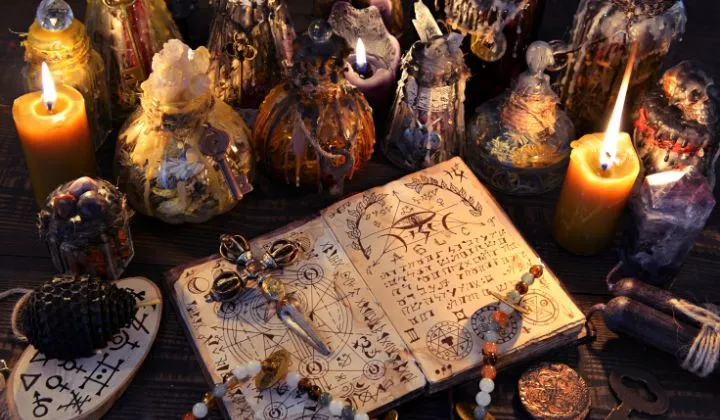
One of the earliest known forms of astrology is Mesopotamian astrology, which emerged in the ancient region of Mesopotamia (modern-day Iraq) around the 2nd millennium BCE. Mesopotamian astrologers created detailed celestial maps and recorded observations to predict celestial phenomena and interpret their meanings for individuals and society as a whole.
Egyptian Astrology
In ancient Egypt, astrology played a crucial role in religious and political life. Egyptian astrologers believed that the movements of celestial bodies influenced the destinies of both individuals and the pharaohs. They used astrology to determine auspicious times for important events such as coronations, temple constructions, and agricultural activities.
Greek Astrology
The Greek astrology, influenced by the earlier traditions of Mesopotamia and Egypt, developed its own unique system. Greek philosophers, including Ptolemy and Aristotle, contributed to the advancement of astrological knowledge. They believed that the celestial bodies had a direct impact on human behavior, character, and fate, forming the foundation of astrology as we know it today.
Indian Astrology
Ancient Indian astrology, known as Vedic astrology or Jyotish, has a rich history dating back thousands of years. It is deeply rooted in Hindu religious and philosophical texts, such as the Vedas and the Puranas. Vedic astrologers used complex calculations and birth charts to provide insights into various aspects of life, including marriage, career, health, and spiritual growth.
Throughout ancient times, astrology was not only a tool for prediction but also a means of understanding the interconnectedness of the cosmos and human existence. It served as a guide for individuals seeking guidance, offering them insights into their personalities, relationships, and life paths.
While the modern astrology has evolved and incorporates new techniques, ancient astrology forms the basis for many of its principles and interpretations. Exploring the wisdom and practices of ancient astrologers can provide us with a deeper appreciation for the profound influence of celestial bodies on human lives throughout history.
About the Ancient Astrology
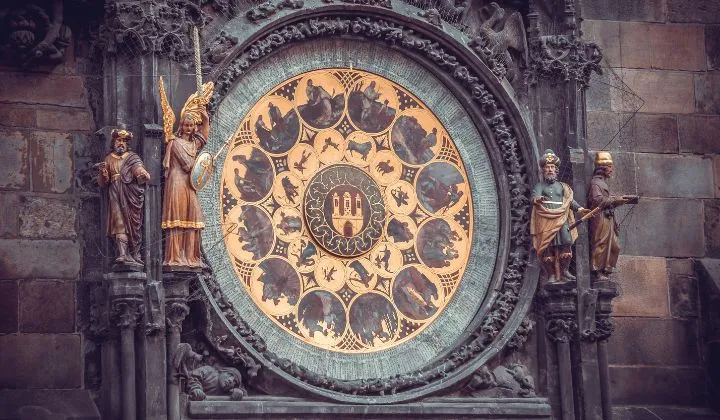
Here are some major astrological facts about the Ancient Astrology:
Celestial Observations:
Ancient astrologers meticulously observed and recorded the movements of celestial bodies such as the sun, moon, planets, and stars. They tracked their positions in the sky and noted any significant events such as planetary alignments, eclipses, and comets. These observations formed the basis for astrological predictions and interpretations.
Zodiac Signs:
The concept of zodiac signs originated in ancient astrology. The zodiac is split into 12 parts, each representing a specific constellation. The position of the sun at the time of a person’s birth determined their zodiac sign. It was believed to influence their personality traits and characteristics.
Birth Charts:
Ancient astrologers created birth charts, also known as horoscopes or natal charts, for individuals based on their date, time, and place of birth. These charts depicted the positions of celestial bodies at the moment of birth and were used to gain insights into a person’s life path, strengths, weaknesses, and potential challenges.
Planetary Influences:
Ancient astrologers attributed specific qualities and energies to each planet. For example, the sun was associated with vitality and self-expression, while Venus represented love and beauty. The interactions between these planets were believed to affect various aspects of human life, such as relationships, careers, and health.
Astrological Houses:
Ancient astrology divided the birth chart into 12 houses, each representing different areas of life, such as relationships, careers, and finances. The placement of planets within these houses provided further insights into specific life domains and how they might be influenced.
Predictive Techniques:
Ancient astrologers developed various techniques to predict future events. These included transits, which involved analyzing the current positions of celestial bodies about an individual’s birth chart, and progressions, which looked at the gradual movement of planets over time. These predictive methods aimed to provide insights into upcoming opportunities, challenges, and major life events.
Medical Astrology:
Ancient astrology also encompassed medical astrology, which sought to understand the connection between celestial bodies and health. Astrologers considered that certain zodiac signs and planets had an impact on certain bodily regions and could be utilized to identify and treat illnesses. Medical Astrology often involved analyzing the birth chart and identifying potential health vulnerabilities.
Mundane Astrology:
Ancient astrologers used astrology to predict and interpret events on a larger scale, such as political and societal affairs. This branch, known as mundane astrology, examined the celestial influences on nations, cities, and significant historical events. It aimed to provide insights into the overall trajectory of societies and their leaders.
These major astrological facts formed the foundation of ancient astrology. While modern astrology has evolved and incorporated new techniques, exploring these ancient practices can deepen our understanding of the enduring influence of celestial bodies on human lives and the interconnectedness of the universe.
Vedic Astrology and its relevance in modern lifeAncient Astrology: The Early History
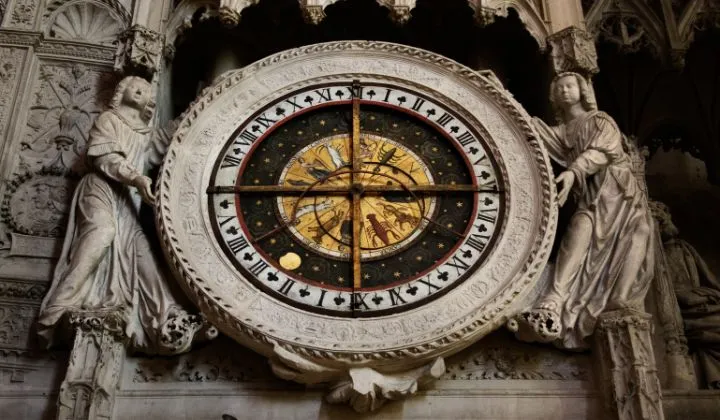
The ancient civilizations that date over thousands of years are where astrology first emerged. Astrological observations and interpretations of the heavens were essential to comprehending the cosmos and human existence in the early Mesopotamian, Egyptian, Greek, and Indian cultures.
Mesopotamian
Many people believe that astrology originated in Mesopotamia, which is in the territory of modern-day Iraq. Around the 2nd millennium BCE, Mesopotamian astrologers developed complex systems to interpret the movements of celestial bodies. They recorded observations and created celestial maps to predict celestial events and their influence on human affairs. The Mesopotamians believed that these celestial phenomena were messages from the gods, and understanding them was crucial for making decisions and predicting the future.
Ancient Egypt
In ancient Egypt, astrology played a significant role in religious and political life. The Egyptians closely observed celestial bodies and their relationship with the annual flooding of the Nile River, which was vital for agriculture. Astrology became intertwined with the worship of gods and the belief that celestial bodies influenced human destinies. The pharaohs relied on astrological guidance for making important decisions, such as the timing of military campaigns and construction projects.
Ancient Greek
Greek astrology emerged as a blend of Mesopotamian and Egyptian influences. Greek philosophers, including Ptolemy and Aristotle, contributed to the development of astrological knowledge. They believed that the celestial bodies exerted a direct influence on human behavior and destiny. The Greeks expanded the practice of astrology by introducing zodiac signs, birth charts, and various astrological techniques for interpretation.
Ancient Indian Astrology
Ancient Indian astrology, known as Vedic astrology or Jyotish, has its roots in the sacred texts of the Vedas. The Vedas contain hymns and rituals that honor the cosmic forces and their connection to human life. Vedic astrologers used complex calculations and birth charts to provide insights into various aspects of life, including marriage, career, health, and spirituality. Astrology in ancient India was deeply intertwined with religious and philosophical beliefs.
History of Astrology
Throughout the early history of astrology, the practice was not limited to mere fortune-telling. It served as a guide for understanding the interconnectedness of the cosmos and human existence. Ancient astrologers believed that celestial bodies influenced human behavior, shaped destinies, and provided valuable insights into individual and collective life paths.
The early history of astrology laid the foundation for the development of astrological knowledge and techniques that have persisted through the centuries. While modern astrology has evolved and incorporated new perspectives, studying the early roots of this ancient practice helps us appreciate its enduring influence on human culture and our ongoing fascination with the celestial realm.
Ancient Astrology: Used in Ancient Times
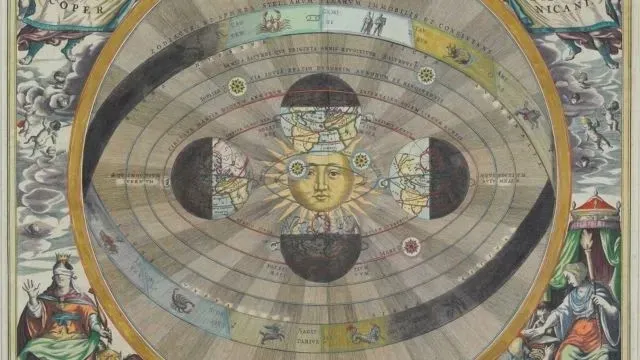
Ancient Astrology served various purposes in ancient times and was utilized for different aspects of life. Here are some of the primary uses of astrology in ancient civilizations:
Personal Guidance:
Ancient Astrology was employed as a tool for personal guidance and self-discovery. Individuals sought astrological interpretations to gain insights into their personalities, strengths, weaknesses, and life paths. Birth charts were created based on the precise time, date, and location of an individual’s birth, providing a detailed map of the celestial influences at play in their lives.
Predictive Purposes:
Ancient astrologers used astrology to make predictions about the future. By analyzing the positions and interactions of celestial bodies, they sought to forecast upcoming events and outcomes in areas such as relationships, career, health, and overall life circumstances. Predictive astrology aimed to offer individuals a glimpse into what lay ahead and help them make informed decisions.
Compatibility and Relationships:
Astrology played a role in assessing compatibility and relationships. By comparing the birth charts of two individuals, astrologers could determine the potential harmony or challenges in their union. Astrology was often consulted for matchmaking purposes, especially in arranged marriages, to ensure compatibility between partners.
Medical and Healing Practices:
Ancient Astrology was associated with medical practices in ancient times. Astrologers believed that specific celestial bodies and zodiac signs influenced different parts of the body and overall health. Medical astrology sought to diagnose and treat ailments by considering the astrological influences on an individual’s birth chart.
Agricultural and Weather Forecasts:
Ancient civilizations heavily relied on astrology for agricultural purposes. Celestial observations were used to determine auspicious times for planting, harvesting, and other agricultural activities. Astrologers connected celestial events with weather patterns, aiding in weather forecasts and enabling farmers to plan their farming practices accordingly.
Political and Social Events:
Ancient Astrology played a role in political and social affairs. Astrologers guided rulers and leaders, helping them make decisions related to governance, wars, and other important matters. Astrology was used to determine propitious timings for significant events, such as coronations, inaugurations, and religious ceremonies.
Spiritual and Philosophical Insights:
Ancient Astrology was deeply intertwined with spirituality and philosophy in ancient times. It was seen as a means to understand the interconnectedness of the universe and the divine forces at play. Astrological symbolism and interpretations were used to explore profound questions about the purpose of life, the nature of existence, and the human relationship with the cosmos.
Throughout ancient times, astrology held a prominent place in society, guiding individuals, shaping decisions, and providing a framework for understanding the world and humanity’s place within it. While its specific applications varied across civilizations, astrology served as a multifaceted discipline that influenced the personal, social, and spiritual aspects of ancient life.
Western Astrology vs Vedic: The Mysterious in AstrologyThe Ancient Roman Astrology

Ancient Roman astrology, also known as Roman astrology or Latin astrology, was heavily influenced by Greek and Egyptian astrological traditions. Although the Romans did not make significant contributions to the development of astrological knowledge, they adopted and incorporated existing astrological practices into their culture and daily life.
Greek Influence
The Romans absorbed much of their astrological knowledge from the Greeks, particularly during the Hellenistic period. Greek astrologers such as Ptolemy and Dorotheus of Sidon had a significant impact on Roman astrology, introducing concepts such as the zodiac signs, planetary influences, and astrological techniques.
Planetary Deities
The Romans associated specific deities with the planets, incorporating their mythologies into astrological interpretations. For instance, Mars was connected to war and aggression, Venus to love and beauty, and Mercury to communication and commerce. The Roman pantheon of gods and goddesses played a significant role in shaping the interpretation of celestial influences.
Public and Private Life
Astrology had a prominent presence in both public and private life in ancient Rome. Emperors and political figures consulted astrologers for guidance on matters of state, wars, and governance. The common people sought astrological advice for personal matters, such as marriage, business ventures, and health concerns.
Augury and Divination
Alongside astrology, the Romans practiced various forms of divination and augury. Augurs interpreted the flight patterns of birds, while haruspices examined the entrails of sacrificed animals. These practices were seen as complementary to astrology, providing additional insights into divine will and cosmic influences.
Nativities and Birth Charts
Roman astrologers created birth charts, or “nativities,” for individuals based on their date, time, and place of birth. These charts depicted the positions of celestial bodies at the moment of birth and were used to gain insights into an individual’s character, destiny, and potential future events. Nativities played a crucial role in personal consultations and astrological predictions.
Mundane Astrology
Roman astrology also encompassed mundane astrology, which focused on predicting and interpreting events on a larger scale, such as the fate of the Roman Empire, wars, and societal developments. Astrologers analyzed celestial configurations and transits to provide insights into the future of the empire and its leaders.
Astrological Texts
Roman astrologers produced various texts on astrology, documenting the principles and techniques of the discipline. Notable works include “Tetrabiblos” by the Greek astronomer and astrologer Claudius Ptolemy, which served as a foundation for later astrological teachings.
While Roman astrology did not introduce significant innovations, it played a substantial role in Roman society and culture. It influenced decision-making, guided personal and political actions, and shaped the understanding of destiny and the interconnectedness of the cosmos. Roman astrology formed part of the broader tapestry of ancient astrological traditions and contributed to the ongoing development and dissemination of astrological knowledge.
The Ancient Greek Astrology
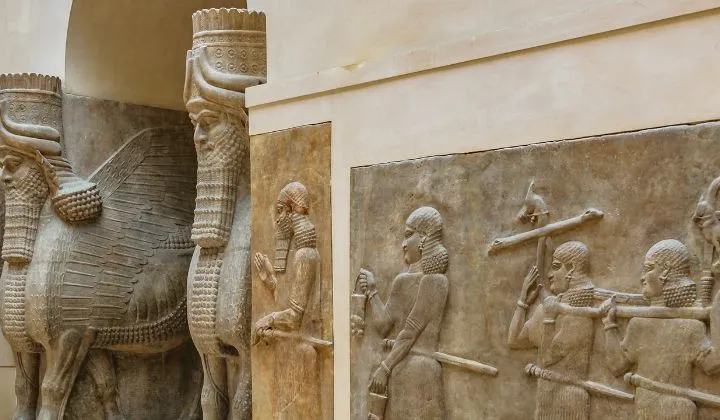
Ancient Greek astrology, also known as Hellenistic astrology, represents a significant period in the development of astrological knowledge. Influenced by earlier Mesopotamian and Egyptian traditions, Greek astrologers made important contributions that shaped the course of astrology for centuries to come.
Philosophical Foundation
Ancient Greek astrology was intertwined with philosophy and the search for wisdom. Prominent philosophers such as Plato and Aristotle explored the concept of celestial influences on human life and character. They believed that the movements of celestial bodies reflected divine order and influenced the destiny of individuals and societies.
Planetary Influences
Greek astrologers assigned specific qualities and energies to the planets. For example, they associated the Sun with vitality and leadership, the Moon with emotions and instincts, and Mercury with communication and intellect. These planetary influences were believed to shape a person’s character, behavior, and life path.
Zodiac Signs and Houses
Greek astrology introduced the concept of zodiac signs, dividing the ecliptic into twelve equal parts, each associated with a specific constellation. The zodiac signs provided a framework for understanding personality traits and characteristics based on the position of the Sun at the time of birth. Greek astrologers also developed the system of astrological houses, dividing the birth chart into twelve sections that corresponded to different areas of life.
Birth Charts and Nativities
Greek astrologers created intricate birth charts, known as “nativities,” based on the exact time, date, and place of an individual’s birth. These charts depicted the positions of celestial bodies at the moment of birth and served as a blueprint for understanding an individual’s life path, strengths, weaknesses, and potential future events.
Astrological Techniques
Greek astrologers developed various astrological techniques and methods for interpretation. They utilized aspects, which are angular relationships between planets, to assess their interactions and influences. Greek astrologers also introduced the use of planetary rulerships, essential dignities, and aspects to refine their interpretations and predictions.
Astrological Texts
Notable astrological texts from the Hellenistic period include “Tetrabiblos” by Claudius Ptolemy and “Mathesis” by Julius Firmicus Maternus. These texts outlined astrological principles, techniques, and philosophical underpinnings, providing a comprehensive understanding of Greek astrology.
Fate and Free Will
Ancient Greek astrology laid the foundation for many of the astrological concepts and techniques that are still used today. It emphasized the interconnectedness of the cosmos, the influence of celestial bodies on human life, and the exploration of individual character and destiny. Greek astrologers paved the way for future astrologers to further refine and expand the discipline, ensuring its enduring significance throughout history.
The Ancient Babylonian Astrology
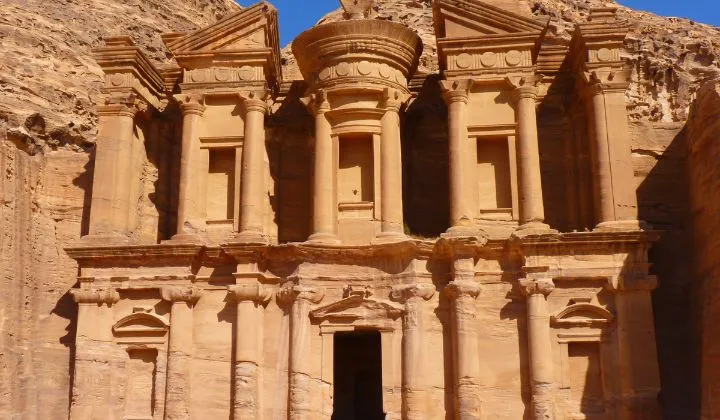
Ancient Babylonian astrology holds a significant place in the history of astrology, as the Babylonians made significant contributions to its development. Their astrological practices, which originated in Mesopotamia around the 2nd millennium BCE, laid the foundation for later astrological traditions.
Celestial Observations
The Babylonians were meticulous observers of celestial bodies. They recorded the movements of the sun, moon, planets, and stars and developed an intricate system of celestial omens. These observations formed the basis for their astrological interpretations and predictions.
The Enuma Anu Enlil
It is a collection of cuneiform tablets, contained celestial omens that were used for divination. These tablets cataloged various celestial events, such as planetary positions, eclipses, and comets, and associated them with specific outcomes and interpretations. The Enuma Anu Enlil served as a vital reference for Babylonian astrologers.
Planetary Deities
The Babylonians associated specific deities with the planets. For example, they connected Ishtar (Venus) with love and fertility and Marduk (Jupiter) with kingship and leadership. These planetary deities played a significant role in astrological interpretations and religious beliefs.
Astrological Texts
The Babylonians left behind numerous astrological texts, including the series of omen tablets known as “Enūma Anu Enlil.” These texts contained detailed instructions for interpreting celestial omens and provided guidance for astrological divination.
Astrological Divination
Babylonian astrology was deeply intertwined with divination. Astrologers interpreted celestial omens to predict outcomes in various areas of life, including agriculture, weather, politics, and personal matters. Astrological divination was consulted for important decisions and served as a means to understand divine will.
Zodiacal System
The Babylonians developed a zodiacal system that divided the sky into twelve equal parts. Each section corresponded to a specific constellation and was associated with particular omens and interpretations. This zodiacal system laid the foundation for later zodiacal divisions used in astrology.
Lunar Mansions
The Babylonians recognized lunar mansions, which were divisions of the zodiac along the moon’s path. Each lunar mansion had its own omen and significance, and they were used for timing rituals, agricultural activities, and other important events.
Lunar and Solar Eclipses
Babylonian astrologers were skilled at predicting lunar and solar eclipses. They understood the cyclic patterns of these celestial events and associated them with specific omens and portents. Eclipses were seen as significant indicators of future events and influenced their astrological interpretations.
The astrological practices of ancient Babylon played a crucial role in the development of astrology as we know it today. Their meticulous observations, detailed records, and divinatory techniques laid the groundwork for later astrological traditions across different cultures. Babylonian astrology demonstrated a deep understanding of celestial phenomena and their impact on human affairs, shaping the way astrology would be studied and practiced in the centuries that followed.
The Ancient Egyptian Astrology

Ancient Egyptian astrology, also known as the Egyptian zodiac or Egyptian astrology, had a profound influence on the religious and cultural practices of the ancient Egyptians. While it differed in some aspects from other astrological traditions, it played a significant role in shaping their worldview and understanding of the cosmos.
Celestial Observations
The ancient Egyptians closely observed celestial bodies, including the movements of the sun, moon, stars, and planets. They believed that these celestial phenomena were connected to the gods and had a direct influence on human life and events on Earth.
Decans and Constellations
Egyptian astrology utilized a system of 36 decals, which were divisions of the sky that corresponded to specific constellations. Each decan represented ten degrees of the zodiac and had its own symbolic associations and interpretations. The rising of specific deals at particular times throughout the year was believed to have significance for individuals and events.
Planetary Influences
The Egyptians associated certain planets with deities and attributed specific qualities and influences to each planet. For example, they connected the planet Jupiter with the god Amun and associated it with growth and prosperity. The planetary influences were believed to shape an individual’s character and destiny.
Solar and Lunar Symbolism
The sun (Ra) and the moon (Thoth) held immense importance in Egyptian astrology. The sun represented life, light, and the divine, while the moon symbolized cycles, intuition, and the passage of time. The movements and phases of the sun and moon were considered significant in astrological interpretations.
Decoding the Stars
Egyptian priests and astrologers were responsible for deciphering the celestial messages and interpreting their meanings. They used their knowledge of astronomy, mythology, and religious beliefs to interpret the symbolism and significance of celestial events, such as the heliacal rising of certain stars and the positioning of planets.
Mythological Connections
Egyptian astrology intertwined with the mythological beliefs of ancient Egypt. The gods and goddesses, with their unique attributes and roles, were linked to specific celestial bodies and zodiacal constellations. These mythological connections influenced astrological interpretations and guided religious rituals and practices.
The Practical Observations
Egyptian astrology was employed for various practical purposes. It guided the selection of auspicious dates for significant events such as temple constructions, religious festivals, and royal coronations. It also played a role in determining the optimal timing for agricultural activities, such as sowing and harvesting, based on celestial observations.
The Ancient Chinese Astrology
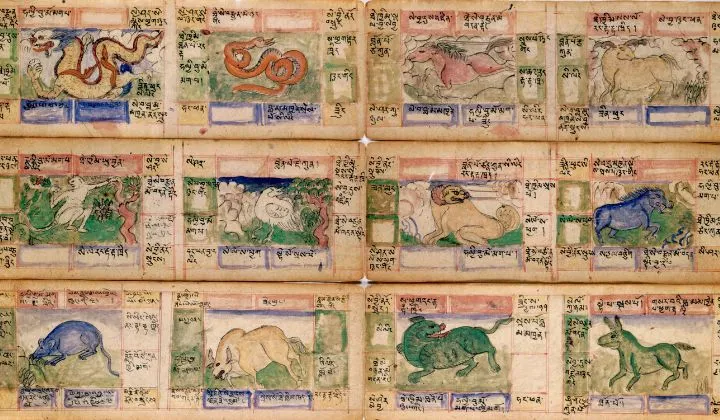
Ancient Chinese astrology, also known as the Chinese zodiac or Four Pillars of Destiny, has a rich history that dates back thousands of years. Based on the standards of Yin and Yang, the Five Elements, and celestial observations, Chinese astrology has played a significant role in Chinese culture and continues to be widely practiced today.
Zodiac Animals
One of the most recognizable aspects of Chinese astrology is the zodiac system, which consists of twelve animal signs. Each year is associated with a specific animal, including the Rat, Ox, Tiger, Rabbit, Dragon, Snake, Horse, Sheep, Monkey, Rooster, Dog, and Pig. These animal signs cycle in a specific order, creating a 12-year cycle.
Five Elements
Chinese astrology incorporates the Five Elements—Wood, Fire, Earth, Metal, and Water—to further characterize the zodiac animals and other astrological aspects. Each element is believed to have unique qualities and interactions, adding depth and complexity to astrological interpretations.
Pillars of Destiny
Ba Zi, also known as Four Pillars of Destiny, is a system within Chinese astrology that analyzes a person’s birth date and time to generate a personalized astrological chart. These pillars provide insights into a person’s character, destiny, and potential life events.
Yin and Yang
The Yin and Yang, fundamental concepts in Chinese philosophy, are essential components of Chinese astrology. Yin represents feminine, receptive, and passive energy, even as Yang represents masculine, active, and assertive energy. The balance and interplay between Yin and Yang influence astrological interpretations and assessments of compatibility and harmony.
Heavenly Stems and Earthly Branches
Chinese astrology utilizes a system of Heavenly Stems and Earthly Branches to denote specific years, months, days, and hours. The Heavenly Stems consist of ten elements, while the Earthly Branches correspond to the zodiac animals. The combination of Heavenly Stems and Earthly Branches is used to determine astrological influences and make predictions.
Lunar Calendar
Chinese astrology is closely tied to the lunar calendar. The lunar year, with its cycles of the moon, is used to determine the start of the Chinese New Year and the corresponding zodiac animal for that year. The lunar calendar is also employed to identify auspicious dates for important events, such as weddings, business ventures, and ancestral worship.
Feng Shui
The Feng Shui, the ancient Chinese practice of harmonizing the environment, is closely connected to Chinese astrology. Feng Shui principles guide the arrangement of spaces and the selection of auspicious directions and elements to enhance positive energy and harmony, both in personal life and within the broader environment.
Ancient Chinese astrology has had a profound influence on Chinese culture, guiding individuals in various aspects of life, including relationships, career choices, health, and personal development. It is deeply ingrained in Chinese traditions, festivities, and everyday practices, reflecting the belief in the interconnectedness of the cosmos and human existence. Chinese astrology continues to be celebrated and consulted for guidance by millions of people worldwide.
Conclusion
In conclusion, ancient astrology represents a fascinating and diverse field of study that has captivated human beings for centuries. From the earliest civilizations to the great empires of Greece, Rome, Babylon, and Egypt, astrology played a significant role in shaping beliefs, cultural practices, and the understanding of the cosmos.
Ancient astrology was based on the fundamental premise that celestial bodies, including the sun, moon, planets, and stars, influenced human affairs and individual destinies. Astrologers meticulously observed and recorded celestial movements, developed complex systems of interpretation, and sought to unravel the mysteries of the universe.
Read more:
The Astrological Guide for your Perfect Career Life